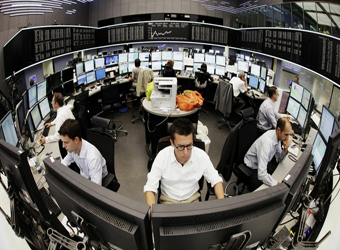European stocks inched slightly lower Tuesday morning on growing tensions between North Korea and the United States.
The pan-European Stoxx 600 was marginally lower, down just 0.01 percent, with sectors taking different directions.
Health care stocks were down by 0.3 percent following news that an attempt to repeal Obamacare has failed. This after U.S. Senator Susan Collins said she would oppose her party’s bill. Novo Nordisk was also down by 1.6 percent after BNP Paribas moved it to “neutral” from “outperform”.
British lender Close Brothers Group was among the worst-performing companies on the European benchmark, down by more than 6 percent. The lender said Tuesday that though current market conditions were stable, the long-term economic outlook was “uncertain” due to Brexit.
AA hit the bottom of the benchmark, down by nearly 10 percent – a new record low – as its growth figures failed to improve. Analysts at Jefferies said that they are worried the firm cannot generate enough cash flow and rated it at an “underperform” level. Analysts at Liberum lowered the target share price for the company but said the appointment of Simon Breakwell as permanent chief executive should be well received.
Deutsche Wohnen was among the top performers after announcing a new convertible bond offering of 800 million euros ($ 947.60 million). The stock rose 3.2 percent.
ThyssenKrupp fell 0.7 percent after carrying out a 10 percent capital increase. According to analysts at Morgan Stanley, capital increases lift more questions than they provide answers to investors.
Also, in the corporate world, Siemens is reportedly set to choose French rival Alstom for a rail merger, Reuters reported citing sources. The German firm was marginally lower in late morning deals.
Trump-North Korea tensions
Overall, markets were down after North Korea’s Foreign minister said Monday that one tweet from President Donald Trump over the weekend was a declaration of war. As such, Pyongyang reserved the right to take countermeasures, which could include shooting down U.S. bombers even if they are not in North Korea’s air space.
In Europe, German Chancellor Angela Merkel has begun coalition talks with three other parties to build a new government, after the far-right AfD party beat forecasts and become the third largest presence in parliament. In Brussels, Brexit negotiations seemed to have resumed on a tough footing after Michel Barnier, the EU’s chief negotiator, said that they cannot discuss a transition deal, like U.K. Prime Minister Theresa May had asked, before settling the issues of citizens’ rights, the Irish border and an exit bill.
Meanwhile in Japan, minutes from the central bank’s last meeting showed Tuesday that the Bank of Japan (BOJ) will continue with its current monetary policy strategy. Policymakers showed signs of optimism given that inflation expectations stopped falling.
Source: CNBC


